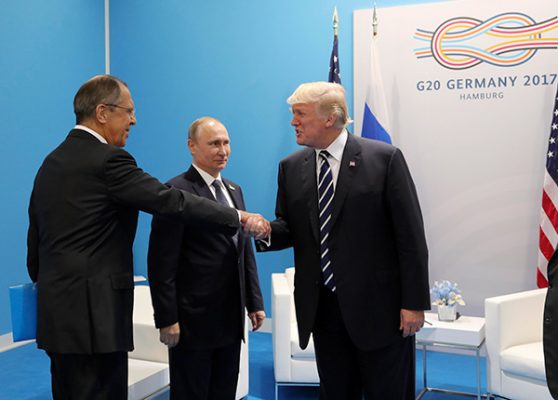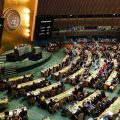
MOSCOW – Russia and the United States will continue cooperation in Syria on the basis of a trilateral agreement with Jordan on setting up a de-escalation zone in the war-torn country, Russian Foreign Minister Sergei Lavrov said Monday.
“Although yesterday, from 12 pm Syrian time, the regime of ceasefire became effective, it has to be strengthened, so there will be plenty of work to be done there,” Lavrov told a press conference.
On Friday, Russia, the United States and Jordan reached a deal to support a ceasefire in southwest Syria, setting up a de-escalation zone to create appropriate environment for reaching a political solution to the situation in the Middle East country.
Lavrov said the agreement envisages the elaboration of additional details on the practical functioning of the zone.
To coordinate those details, it was agreed to put into operation a monitoring center, which is being created by Russia, the United States and Jordan in the Jordanian capital of Amman, and which will be in permanent contact with the Syrian government forces and the opposition, he said.
According to Lavrov, the participants in the talks on Syria in the Kazakh capital of Astana were close to reaching an agreement on setting up two more de-escalation zones in the western Syrian region of Homs and in the eastern region of Ghouta, and talks were continuing on another zone in the northwestern governorate of Idlib.
Lavrov said Russia saluted “active participation” of the United States in the Astana process and would keep cheering it, in spite of Washington’s observer status at the talks.
He added that Moscow also maintained stable contacts with Washington at the talks in Geneva, which were restarting on Monday, as well as with other key countries, which influenced the developments in Syria.
“We have to consider attitudes of a very big number of players when referring to its solution, and it is not easy to reconcile those positions and to find the balance of interests. But as the Russia-US-Jordan agreement of July 7 has shown, it is possible,” Lavrov said.
The Syrian war, now into its seventh year, has taken a toll on the country’s population with hundreds of thousands being killed, around 6.3 million being displaced within the country, and 5.1 million being forced to flee as refugees outside its borders.
Over the past months, the situation is particularly dire in Raqqa, where an offensive was launched to take the city from the Islamic State terrorist group. About 25,000 have reportedly fled the city since military operations started. However as many as 100,000 civilians could still be trapped there.


